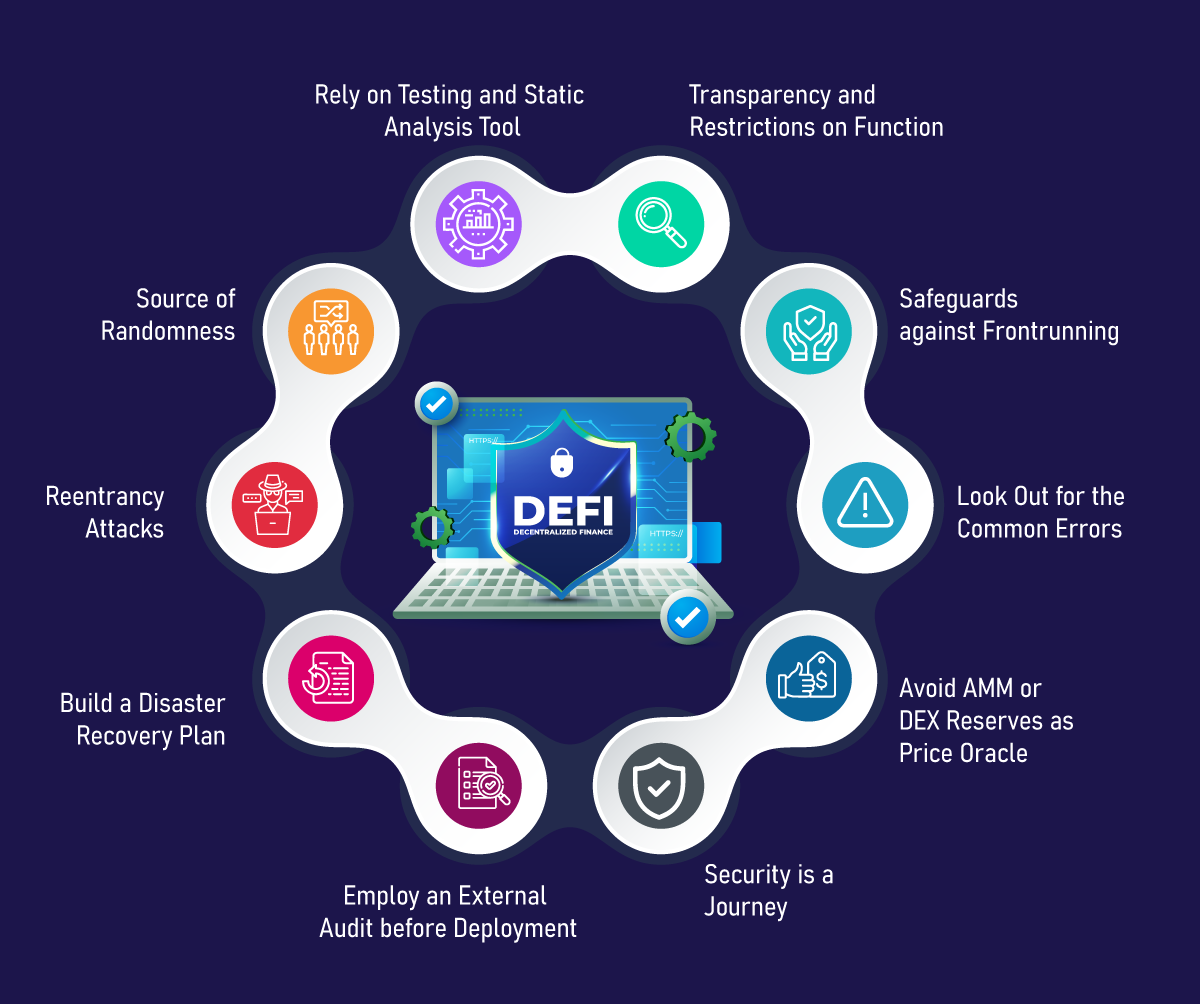Context:
Decentralized finance, or DeFi, has sparked intense debate about national security in recent times due to its potential misuse for illicit activities like terror financing and money laundering. With over billions worth of assets locked in DeFi projects, the sector's rapid growth has raised concerns among experts and regulatory bodies.
What is DeFi?
-
- DeFi is a blockchain-based financial ecosystem that offers peer-to-peer financial services via smart contracts and decentralised apps (DApps).
- It does not require a central authority or even identity verification.
- Users can operate anonymously with multiple crypto wallets and without any Know Your Customer (KYC) compliance.
- DeFi is a blockchain-based financial ecosystem that offers peer-to-peer financial services via smart contracts and decentralised apps (DApps).
The Scale of Growth:
-
- As of mid-2025, there were 14.2 million active DeFi wallets worldwide.
- The global DeFi market is projected to grow from $30.07 billion in 2024 to $178.63 billion by 2029 at an annual rate of 43%.
- India ranks 3rd globally in DeFi usage (Chainalysis, 2024).
- As of mid-2025, there were 14.2 million active DeFi wallets worldwide.
Key Security Concerns:
1. Terror Financing
-
-
- DeFi allows terrorist groups to anonymously raise and transfer funds globally, bypassing formal financial surveillance systems.
- Transactions are difficult to trace, and even the recipients often don’t know who sent the funds.
- DeFi allows terrorist groups to anonymously raise and transfer funds globally, bypassing formal financial surveillance systems.
-
2. Anonymity and Lack of Regulation
-
-
- Most DeFi platforms do not require user identification, making them prone to misuse.
- Crypto mixers, anonymising tools, and cross-chain transactions further obscure illicit trails.
- Most DeFi platforms do not require user identification, making them prone to misuse.
-
3. Smart Contract Exploits
-
-
- DeFi relies on self-executing code which can be hacked or exploited.
- Governance via DAOs (Decentralised Autonomous Organisations) lacks accountability and clear regulatory oversight.
- DeFi relies on self-executing code which can be hacked or exploited.
-
International Response:
-
- US Treasury (2023): DeFi services must comply with AML and CFT rules.
- EU (2025): High risk of money laundering in DeFi, urges stricter supervision.
- UK (2025) and FATF (2025): Point to DeFi’s vulnerability to terror financing and call for standard-setting.
- US Treasury (2023): DeFi services must comply with AML and CFT rules.
India’s Preparedness: Gaps and Challenges:
-
- India's last National Risk Assessment (NRA) was in 2022 — no specific assessment on DeFi has been done.
- While India has robust financial inclusion through JAM trinity and UPI, DeFi’s added value is marginal compared to its risks.
- The lack of DeFi-specific risk analysis leaves regulatory blind spots, especially in a country constantly threatened by terrorism.
- India's last National Risk Assessment (NRA) was in 2022 — no specific assessment on DeFi has been done.
The Way Forward:
Sectoral Risk Assessment
-
-
- A DeFi-specific NRA should be conducted, aligning with FATF standards and global best practices.
- A DeFi-specific NRA should be conducted, aligning with FATF standards and global best practices.
-
RegTech Integration
-
-
- Use AI/blockchain analytics to monitor suspicious DeFi transactions in real-time.
- Use AI/blockchain analytics to monitor suspicious DeFi transactions in real-time.
-
Public Awareness & Collaboration
-
-
- Sensitise DeFi developers, users, and platforms to national security implications.
- Sensitise DeFi developers, users, and platforms to national security implications.
-
Global Coordination
-
-
- Cooperate internationally to close loopholes exploited by cross-border criminals.
- Cooperate internationally to close loopholes exploited by cross-border criminals.
-
Conclusion:
While DeFi represents financial innovation, its unregulated growth poses a clear and present danger to national security, especially in a country like India with high terror risks. Banning DeFi is neither practical nor strategic — but smart, risk-based regulation is essential.







